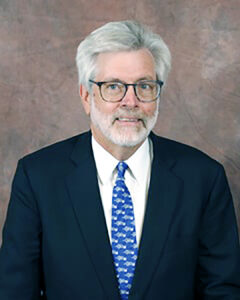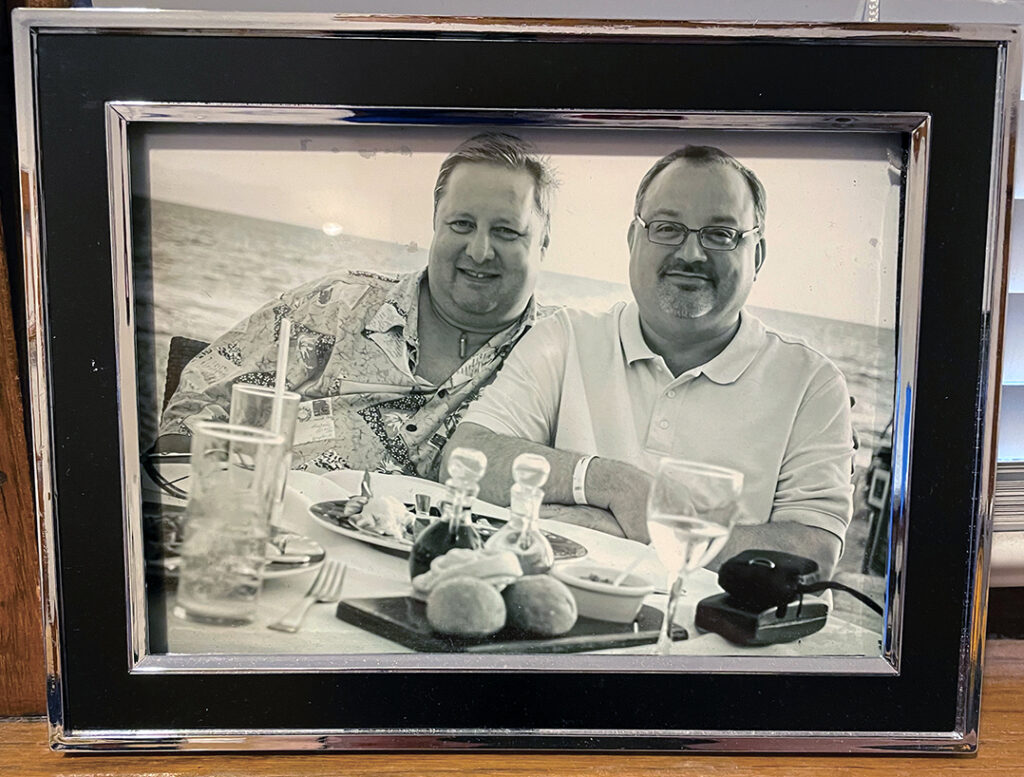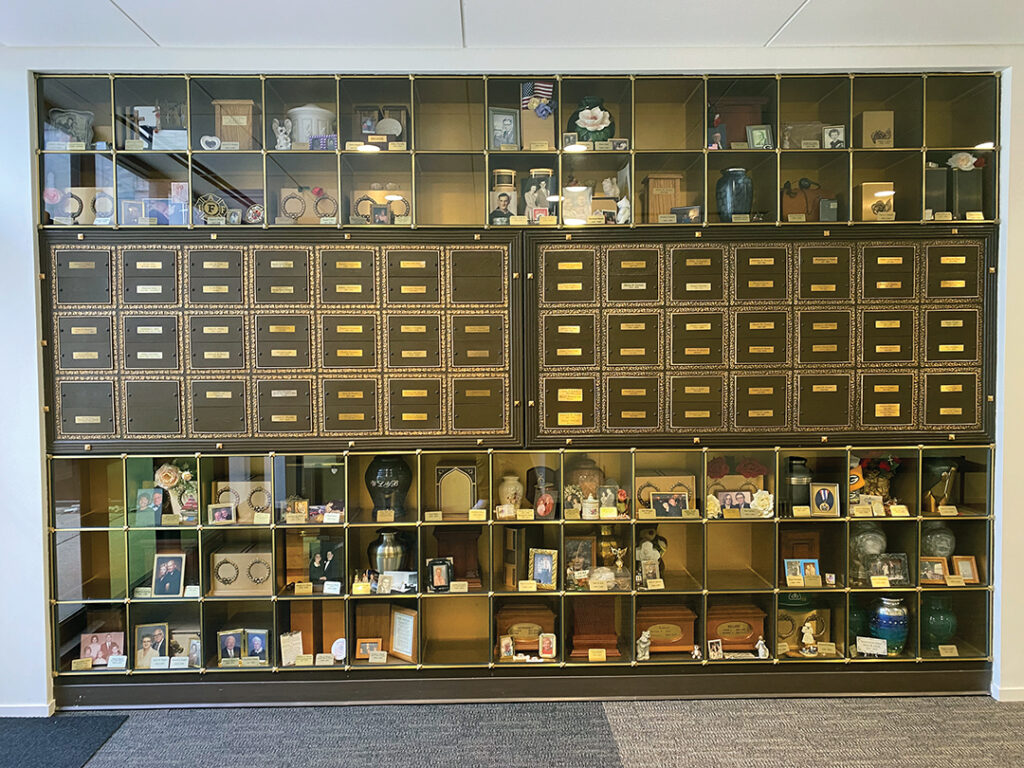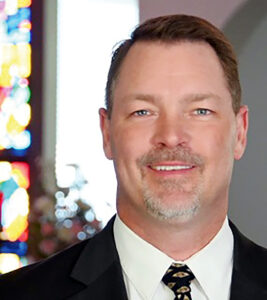Modern changes to traditional funerals
7/5/2023Modernization has impacted industries, businesses, transportation, home life, entertainment — you name it. Automation, AI, smartphones and self-checkout are examples of the changing times many encounter on a regular basis. Even our long-held traditions and practices have changed with modern sensibilities and technology. From gender reveal parties to end-of-life practices, the way we look at life’s milestones is changing, and that includes trends in funeral services.
Ceremonies surrounding death have existed since before history was recorded. From embalming and mummification in ancient Egypt, to the catacombs in Paris and Native American burial mounds in the U.S., many iterations of funerals have been documented throughout history.
Evidence exists of prehistoric practices of placing naturally sprouting flowers upon graves as early humankind mourned their losses. (An instance of this was discovered in Iraq in the 1950s). According to the Woodvale Cemetery, the first funeral home in the U.S. was established in 1759 in Williamsburg, Virginia, by Anthony Hay, who manufactured coffins.
As time has passed, and funerals have evolved, more ways to bury, mourn and celebrate loved ones have emerged. One practice that has become commonplace in society is cremation, with the first documented practice in the U.S., according to smartcremation.com, occurring in 1876 by Dr. Francis Julius LeMoyne, who wanted to explore this practice because he felt decomposing bodies were contaminating the local water supply and risking the health of locals. While he did experience pushback on the idea of burning bodies (Dr. LeMoynes’ practice saw that flames never touched the bodies), it’s become common in the U.S. and around the world with more than 1.9 million cremations occurring in the U.S. in 2021.
While the practice of cremation and the use of coffins developed during the 18th, 19th and 20th centuries, the 21st century has seen its own evolution of funerals. The evolution is mainly focused on providing a wider variety of choices as not every family is interested in a traditional, religious-based funeral service.
Ryan Fredregill of Celebrate Life Iowa Cremation Services has seen his share of funeral services and a change in how funeral homes work from a business standpoint.
“I’ve learned that pets really are family. We’ve had a minister and service for a dog and, again, it’s been a rarity, but we were a part of it. That was a pretty awesome thing,” said Fredregill.
The business has adapted to changing trends in funerals. Celebrate Life Iowa is located in an office high rise in West Des Moines that helps them save on costs.
“If you look at 20 years ago, a funeral meant a territory, and you didn’t extend beyond that territory too often. With the Internet, and in general, people don’t mind driving 30-40 miles to save a significant amount of money, even if they have to drive farther than that. It’s a business, and, if you don’t evolve, you’re not going to be in business anymore,” said Fredregill.
Accelerated by the pandemic, the need for face-to-face interaction while conducting business has changed.
“That’s the way of the world — and especially the way of the Internet and shoppers. I think people are getting that online checkout experience, and we do offer that where we can do electronic signatures for family members. They might not have to sit right in front of us. I have teenagers; they don’t like to talk anymore. They text. I think it’s kind of going to be that similarity with people in their comfort level in meeting with a funeral director, which nobody probably ever wants to do, and I don’t blame them,” said Fredregill.

“The important part is community, family, friends and recognizing that something has changed in your life when somebody you care about has died. We can provide ways to memorialize, whether it’s through videos, music, food and beverage or a traditional service.”
— John Wild
Accommodating wishes
John Wild, funeral director of Iles Funeral Homes, says the business has incorporated new ways to accommodate families.
“The thing that we think is the most important commonality is finding ways for family and friends of the community to offer support to recognize that something has changed,” said Wild.
Gone are the days when funerals must be held in formal, church-style settings. Wild says the most important factor to many families is that the deceased receive a suitable farewell.
“We’ve had gatherings of all kinds. Just this past month, there was a gathering at Noce that fit the family very well. There was another one at The Blazing Saddle that just met the family’s needs in that particular case. We were able to show a video tribute there and livestream it. People got to share words of comfort with the family,” said Wild.
The service that Iles helped put on at The Blazing Saddle, a bar in Des Moines’ East Village, was for Sean Linthicum. Linthicum’s husband, Doug Woods, recounts his experience with the celebration of life they were able to have. After Linthicum received his diagnosis, he and Woods had conversations on how he wanted to be remembered.
“First, non-religious. No priests and no ministers. He wanted a party where family and friends could gather, remember and rejoice,” said Woods.
However, the couple also wanted to accommodate family that would be comforted by a more traditional observance. A combination of the two was made possible, demonstrating the ability to adapt services for people with a variety of views.
“Out of respect for his family, he wanted a viewing. I chose to have a small service for his family, many of which were there. Everyone respected his and my requests. Out of respect for his family, I stepped out so that they could pray and perform any religious rituals,” said Woods.
Being regular patrons of The Blazing Saddle, the venue was not only a perfect fit for those who had come to know Linthicum, but also for his wish to be sent off in a party-like setting. The owners of The Blazing Saddle made sure the send-off was what Linthicum wanted.
Iles and The Blazing Saddle were able to give Linthicum and Woods the service he wanted, which would not have been possible in the traditional sense.

Doug Woods and Sean Linthicum were together for 36 years. Owners of The Blazing Saddle didn’t charge Woods for the service that was held at the establishment.
“Sean’s pre-need was made only two weeks before his passing. This took so much stress off of myself. Sean said, ‘I just want a party and have people tell stories, to laugh and have fun,’ and that’s what we did for three hours,” said Woods.
Other venues that Iles has been able to provide services at include the Des Moines Art Center and the Botanical Center, thanks to those individuals’ connections.
“The idea is the same with whatever we do. That idea of saying goodbye for the family and bringing community together and having that support is the same,” said Wild.
Scott Pierce, a resident in Johnston, recently had a celebration of life service for his mother at Merle Hay Funeral Home. There were several factors that led his family to choose a modern service as opposed to a traditional one.
“My dad passed away in 2014. I’d say that was probably a little bit more traditional, although he was cremated. I think a lot of it is that cremation is becoming a more popular choice than burial. Because of that, it seems like that’s prompted more of a different approach to services,” said Pierce.
This type of service also allowed his family to be more creative in how they were going to send off their mother. There was a tribute video playing at the back of the venue that was made by Pierce’s brother and five “shadow boxes” on each side of the aisles that allowed family members to put tributes they made on display. The spaces included items from his mother’s collections and pieces Pierce says defined her.
“Everybody who came loved it. They said, ‘Oh you have that,’ or ‘We didn’t know about this with your mom’ or ‘We knew about this’ and it was just set up perfectly. It really made it comfortable for everyone,” said Pierce.
As opposed to a traditional funeral where it’s common to have close family members stand in a row with guests coming to speak to them, the service was more of a gathering.
“We weren’t standing up front like so many funerals and visitations I’ve been to. You wait so long in line and almost feel like cattle at an amusement park. You’re just meandering through the line and standing around for half an hour or even an hour getting to the people, just to say ‘Sorry,’ and you never know what to say anyway,” said Pierce.

Inside of the Merle Hay Funeral Home are boxes with memorials for urns, where friends and family can visit the cremains of their loved ones. The benefit of these displays is that, in the event of relocation, the need to unearth a burial is removed.
New burial options
Other trending options for funerals are green burials and memorial gardens. Iowa is lacking in this regard with only one cemetery dedicated to green burials in central Iowa. The only one certified by the Green Burial Council is located in Cedar Rapids. According to lawnlove.com, Iowa is ranked No. 40 in the country for green burials.
“We don’t have any true green cemetery options. However, we can work with cemeteries to allow us to meet their requirements and still do the best we can in surrounding the casket with earth,” said Wild.
Wild cited that one of the reasons cemeteries might not accept a truly green burial is due to maintenance. Cemeteries don’t want the monuments or tombstones to dip or fall over due to the earth beneath not being supported as it would be with a casket inside a vault.
A difficulty Blair Overton, owner and funeral director at Merle Hay Funeral Home, sees with potential green burials in Iowa is due to the rough winters it experiences that can cause the ground to freeze.
“What are we doing in the middle of January? Because, if you’re not doing an embalming, and, if you’re going back to nature, that means the clock for disposition starts to tick down. Can we thaw a grave, plan everything in the short amount of time needed so that we can bury the person inside the requisite timeframe?” said Overton.
It’s also become increasingly common for people to spread their loved one’s ashes. According to the Washington Post, more than 60% of deceased Americans were cremated. If you’re going to spread the ashes legally, permission is needed from wherever you plan on doing so. Common places where people want to have their ashes spread include baseball fields, coastlines, hiking trails and flower gardens.
“There’s a couple of unique ways to scatter cremated remains,” said Wild. One available at the funeral home is a walking stick that holds cremated remains. “And every time you press it down, a little bit more will dribble out,” said Wild.

“One thing my dad says, is
‘grief shared is grief diminished.’
The more people who share in your grief,
the more it’s going to help you.”
— Blair Overton
Some of the creative and modern burials Iles Funeral Home has been able to conduct in recent years include burying someone with their motorcycle, shooting cremains off in fireworks, placing small amounts of cremains into shotgun shells, and having ashes turned into parting stones that can be given out to several individuals for them to either keep or place in a way that doesn’t interfere with laws on spreading ashes.
Fredregill and Overton both mentioned one of the newest forms of disposal of human remains and end-of-life service: alkaline hydrolysis. The process “uses water, alkaline chemicals, heat, and sometimes pressure and agitation, to accelerate natural decomposition, leaving bone fragments and a neutral liquid called effluent,” according to the Cremation Association of North America.
This process hasn’t been made legal yet in Iowa but is actively practiced in 15 states. This includes the surrounding states of Minnesota, Missouri and Illinois.
Changing the funeral venue
Thanks to a recent renovation, Merle Hay Funeral Home is bringing the newer celebration-style service to the funeral home instead of having to use another venue.
Overton saw the need for a new space that is more accommodating to a celebration of life service. The funeral home was recently remodeled and suits the growing trend more than a traditional funeral home does.
“Basically, we can do a reception. Meaning that, if you want to bring in a bartender, if you want to have food, if you want to have a reception-type atmosphere, we have that capability,” said Overton.
Overton agrees that, while funerals are uncomfortable for people to discuss, and many want to avoid that conversation, they are important to have — not just for the person organizing the funeral, but for anyone who may have known the person being remembered.
Overton says some clients say, “Let’s just do a simple cremation, and then we’ll be done.” “We’re social creatures, and that usually leads to a bad outcome. You’re going to have to deal with the loss in some form or fashion. What we’re trying to do in the end of life is to give you as many options to do so, and that you do something,” said Overton.
Benefits of options
Trying to change someone’s perspective on the norm can be challenging — especially on something as important as a final resting place and how to be sent off. Having an abundance of choices can help.
“Some of the older people might have a problem with that (changing of funerals). I mean, my mom was 89 years old. And she was very strong traditionally. Yet, she wanted to be cremated, which was kind of a surprise,” said Pierce.
When it comes to the price, these types of modern funeral services can be more affordable. According to the Iowa Funeral Directors Association, the average cost for a traditional funeral that includes embalming, preparing the body for viewing, visitation/viewing, a funeral at the funeral home, transfer of remains to funeral home, hearse, service car/van, memorial package and casket is $7,275.
“Yes, there is a substantial difference in cost to do the traditional burial. It would have cost at least twice as much as it did if we had gone that route,” said Pierce.
Having the luxury of choice was especially important to Pierce. He wanted his family to give their mother the best sendoff possible.
“There were so many different options. That worked out so great. And in a difficult time, you got to have that feeling like, they’re with you all the way and they’re doing everything they (the funeral home) can to make it the way you want it. That’s the most important thing,” said Pierce.
Much like the funeral directors, Pierce reiterated the importance of having discussions about arrangements with loved ones.
“Those conversations are essential. They’re tough, but they’re essential,” said Pierce. ♦





















